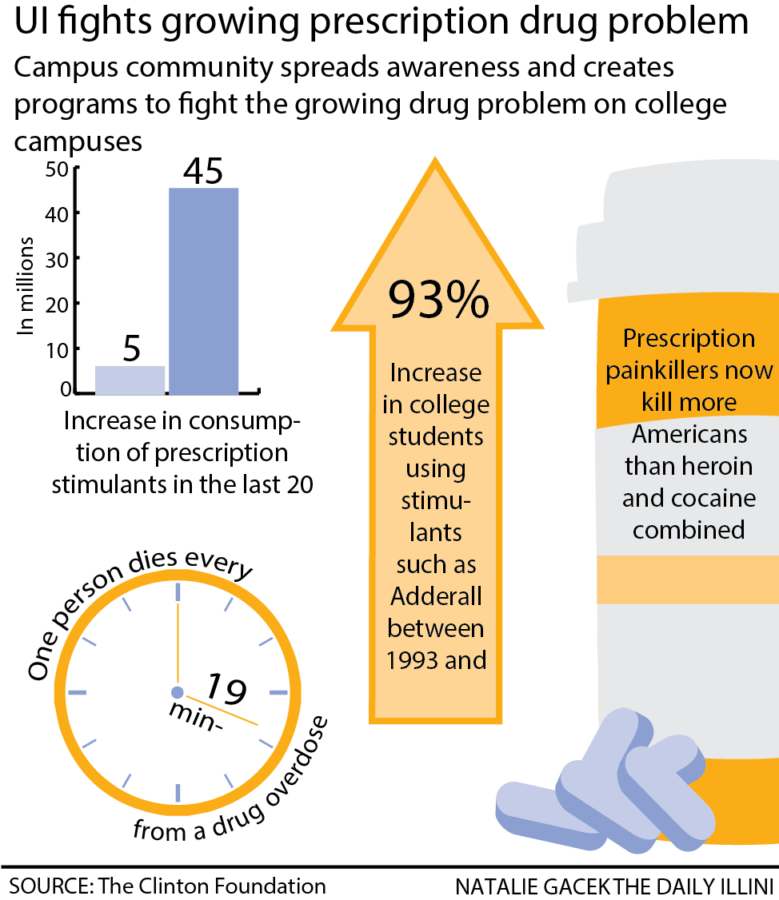UI fights growing prescription drug problems
March 8, 2016
But the use of that same study-aiding stimulant can result in serious consequences, according to McCullough.
The consequences for selling or abusing prescription drugs can also result in a dismissal period from school for a student caught illegally with drugs.
“There is a reason those drugs are controlled,” McCullough said. “There are more penalties for selling prescription drugs than for selling marijuana.”
McCullough said that the University is fair and consistent when disciplining their students for alcohol and drug offenses. Their first priority is to get students help.
Get The Daily Illini in your inbox!
But this issue isn’t just affiliated with the University alone. Prescription drug abuse is on the rise in the U.S., especially on college campuses, and a large part of this is due to the growing popularity of students who are relying on prescription drugs to face the pressures of succeeding.
Prescription drug abuse is the third leading cause of accidental death in the U.S. According to the Clinton Foundation, the use of stimulants, such as Adderall, has increased by 93 percent on college campuses between 1993 and 2005.ch
The campus community at the University has been working to educate students about the dangers of drug abuse and to help students overcome addiction and other drug-related problems.
From education and awareness to internal programs set up by the University police, members of the community are committed to fighting the drug problem.
Elora Orazio, a specialist in education at the Counseling Center at Illinois,ch said she has always been interested in college-aged kids, so she got involved with education and drug awareness training programs after she started to realize that alcohol and drug abuse were the two biggest health risks to college-aged students.
Orazio teaches a Community Health class that educates future student facilitators on alcohol and drug abuse and prepares them to lead the discussion in a workshop required for students at the University.
“They all care about the community and the success of our students,” Orazio said of the students taking her class to become facilitators.
The required orientation program for incoming students, ACE IT, educates students about alcohol and drug abuse, as well as the University’s policies toward alcohol and drug-related offenses. The workshop also makes students aware of campus resources that are available to them.
Amanda Abrams, freshman in LAS who is also taking the Community Health class to become a facilitator at ACE IT, said the University takes a “harm reduction approach to dealing with drug abuse.” Harm reduction focuses on reducing the harmful consequences of drug use and ineffective drug policies.
She said the University wants students to be more aware of the consequences of drug use and abuse.
The University police department recently set up internal programs to help students that have problems with prescription drug abuse. These programs offer students a chance to avoid criminal records and potential jail time by setting up alternatives such as counseling and mandatory drug tests.
McCullough said that he has seen students completely overcome their struggles with addiction because of the programs and resources they have set up to help students beat their addictions.
“They’ve made themselves proud,” he said. “It’s pretty neat to see that end result.”







